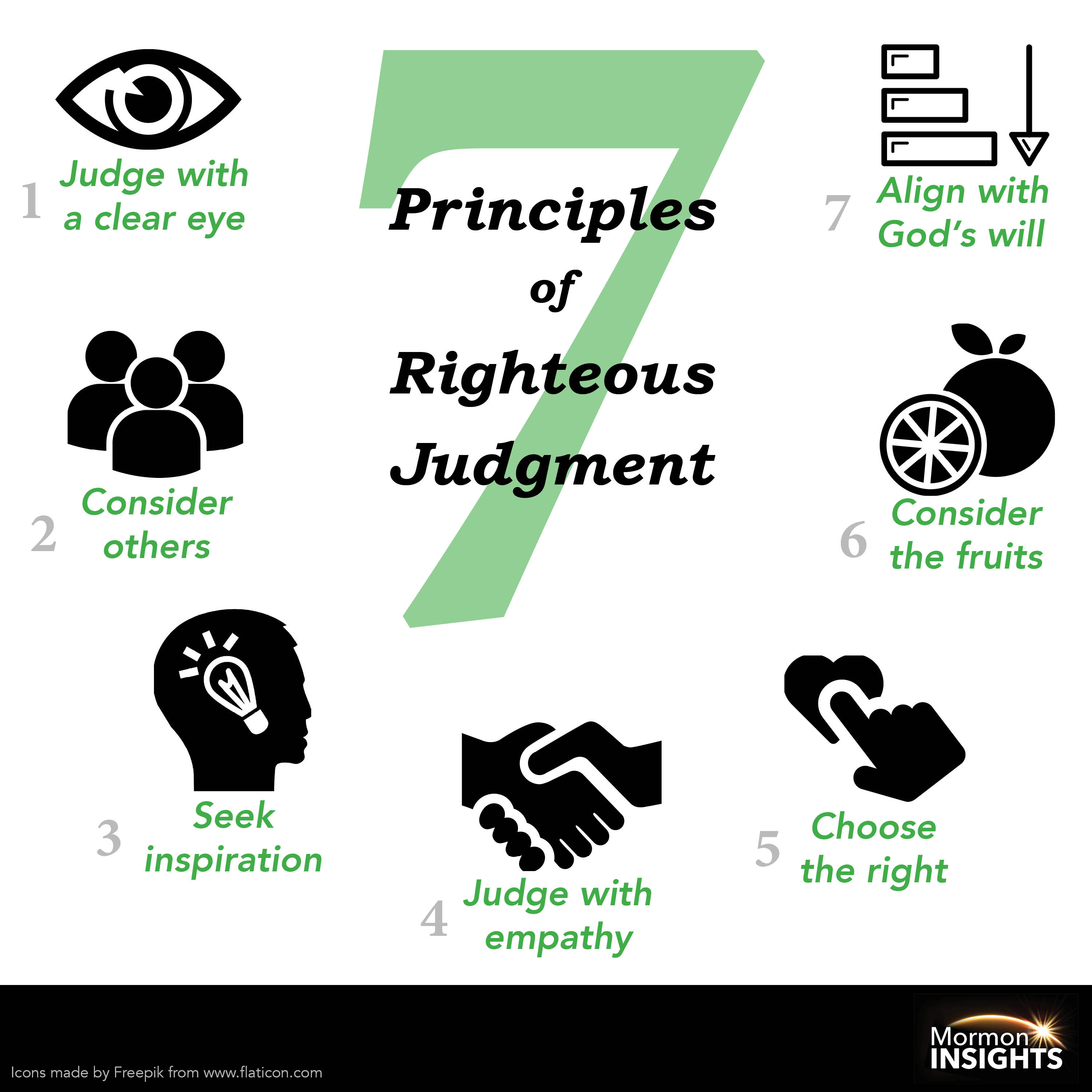We are sometimes required to pass judgment on other people and on important decisions in our lives. These seven principles outline how we can make righteous judgments.
In Matthew 7:1, Christ commands us not to judge. Through the Joseph Smith Translation, however, we see that not all judgment is bad. It is unrighteous judgments that we should avoid. Terry B. Ball’s article “‘Judge Not, That Ye Be Not Judged’: An Approach to Teaching Matthew 7” provides seven principles that will help us make righteous judgments.
1. Judge with a clear eye
In order to make righteous judgments, we need to be able to see clearly. Just as Christ instructed in Matthew 7:3, we must consider the beam in our own eye before we try to pull out the mote in another’s eye.
2. Consider others
When we make righteous judgments, we should always consider how others will be affected. It is selfish to assume that our actions do not affect others.
3. Seek inspiration
The Lord is omniscient, but we are not. We need to seek his guidance first, and then righteous judgments will follow.
4. Judge with empathy
In Matthew 18:23–35, Christ tells the story of a servant who was extended mercy but who remained unmerciful to others. His lack of empathy comes back to harm him in the end. Christ’s parable teaches us that we should judge others the same way we would want to be judged.
5. Choose the right
We need to choose the right path, even if it requires trial and sacrifice.
Read the full article, “‘Judge Not, That Ye Be Not Judged’: An Approach to Teaching Matthew 7.”
Source: Religious Studies Center
—Bryn Larson, Mormon Insights
Find more insights
For more on righteous judgment, read Matthew 7.
For the full parable on the unmerciful servant, read Matthew 18.
Read Elder Dallin H. Oaks’s talk on “‘Judge Not’ and Judging.”
Photo courtesy of Norman Tan



